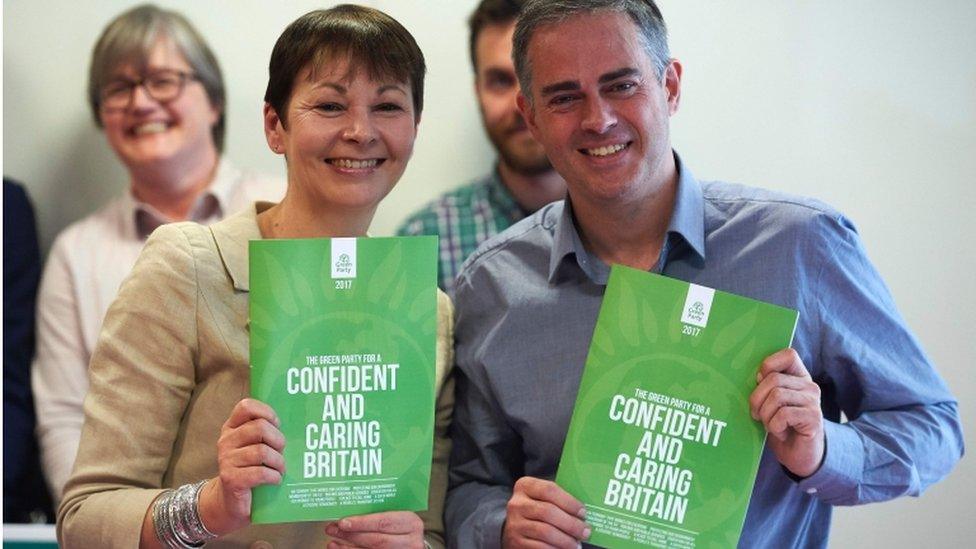How should politicians reconnect with voters?
- Published
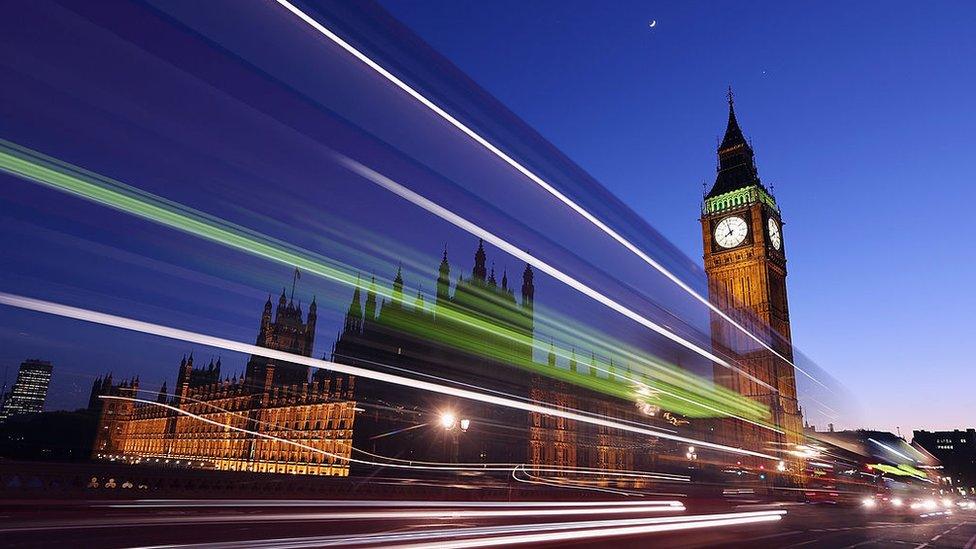
Excited about the election? Travelling around Britain and talking to people about politics, the sentiment which emerges as strongly as any is that they feel disconnected from power. Their voice isn't heard. Elections don't change much. Democracy doesn't work for them.
More than anything else, I think it was that which drove the Brexit vote, a feeling among millions that decisions that changed their lives and their communities were being made in a faceless office in Whitehall or, worse, a mirrored-glass building in Brussels.
Resentment at the EU is often matched by resentment of London. In one of the most centralised countries in the Western world, "taking back control" is really a desire to have far greater say over the destiny of your town or your job or your family.
And so an existential challenge for the government of the United Kingdom is to convince the citizenry that power will be returned to them.
It is an ambition that the prime minister has spoken about on several occasions and large chunks of her party's manifesto are devoted to it.
"For too long power in Britain has been centred in London," the Conservative document says. Closing the gap between the capital and other UK cities is described as the "biggest prize in Britain today".
There are pledges physically to move significant parts of the UK government out of the capital and the south-east of England to cities around the country. The same goes for cultural and arts organisations with Channel 4 being forced to relocate outside London if the Conservatives win the election.
Labour's manifesto also wants to bridge the gap, saying "just as many felt that power was too centralised and unaccountable in Brussels, so many feel that about Westminster". They'd like regional offices in England to increase contact between central and local government.
Both Labour and the Liberal Democrats are promising a constitutional convention on ideas for a more federalised country and the Conservatives say they are committed to "ensuring that power sits closer to the people of the United Kingdom than ever before".
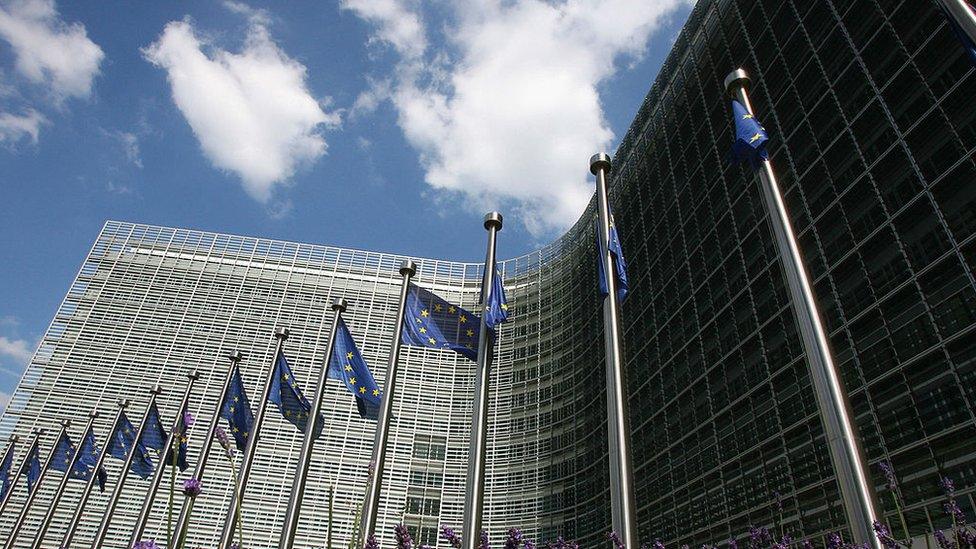
Brexit is just one expression of some voters' apparent rejection of centralised power
"Ever" is a big word and it would be easier to forgive the hyperbole if previous Conservative promises to "turn government on its head" (as David Cameron described his devolution plans) had been as revolutionary as sold.
But the Conservatives are aware of the need, as the manifesto puts it, to give a voice to people who feel distant from the centre of power.
Money that comes back from the EU after Brexit will, they say, be put into a UK Shared Prosperity Fund designed to reduce inequalities between communities across the four nations. Although Whitehall will still have the final say, there is a promise to consult widely including with the devolved administrations.
And interestingly, those administrations include not only the governments in Scotland and Wales and the executive in Northern Ireland, but also what are described as the "new devolved authorities" in England.
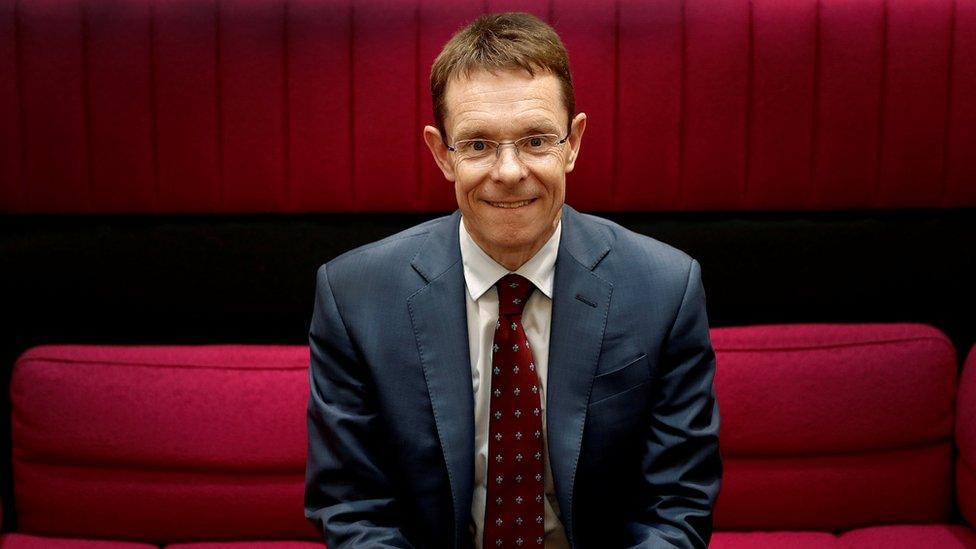
Andy Street is mayor of the West Midlands, one of England's combined authorities
What they mean are the new combined authorities, some with elected metro mayors. There is now a structure for moving power from Brussels, through London and out to metropolitan regions across England.
The combined authority model, still highly controversial in some parts, gets the thumbs up from an initially sceptical Theresa May. The manifesto says a Conservative government would consolidate the approach.
There are likely to be more elected mayors in city regions, with strategic powers that come with the title, although both the Liberal Democrats and Labour argue local opinion, rather than Whitehall, should decide what devolution looks like.
The public in England remain dubious about all of this. More politicians. more bureaucracy and London still holding the purse strings. Those are often people's first responses. But such are the profound levels of distrust and detachment felt by voters, that whatever government we get, ministers are going to have to overcome that alienation and do something to reconnect with citizens.
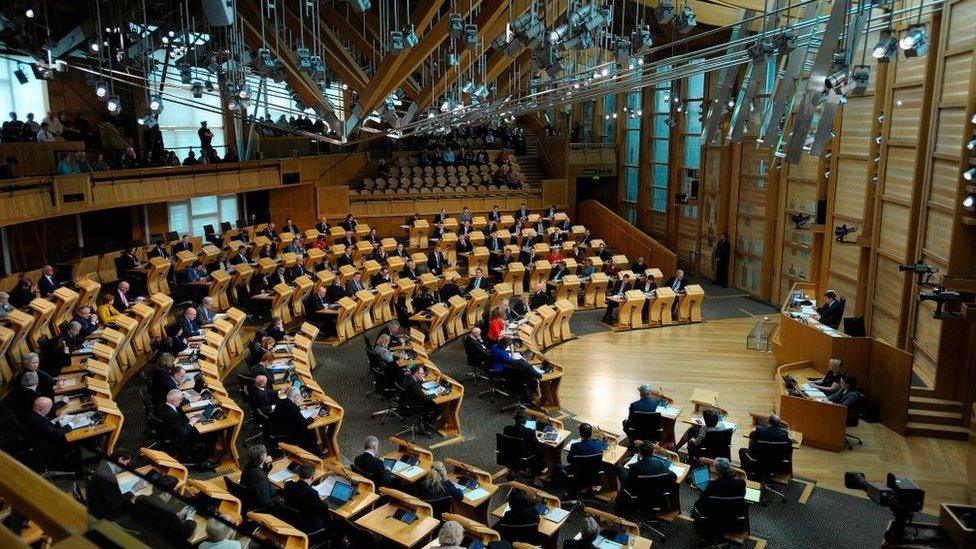
The Scottish Parliament. Will the future bring more devolution or even independence?
People need to feel their concerns are understood and will be acted upon. They want to feel some link to power.
It is a reasonable assumption that for the vast majority of voters in this current election, the allegiance of their MP won't change and in many seats, it won't have changed for decades.
At the last general election, one person in eight voted UKIP. One person in 650 was UKIP's representation in the Commons and that quickly fell to zero. You can understand why many millions of people think general elections don't change things.
Neither Conservative nor Labour wants to give up the first past the post system which entrenches their hold on national politics. Indeed, the Tories want to extend that system for mayor and police commissioner elections in England.
Constitutional reform and devolution deals are not phrases that stir many people's blood. But the unpredictability of contemporary politics and the deep passions revealed suggest, that for the future of the United Kingdom, they may be the most important policy areas of all.
- Published22 May 2017
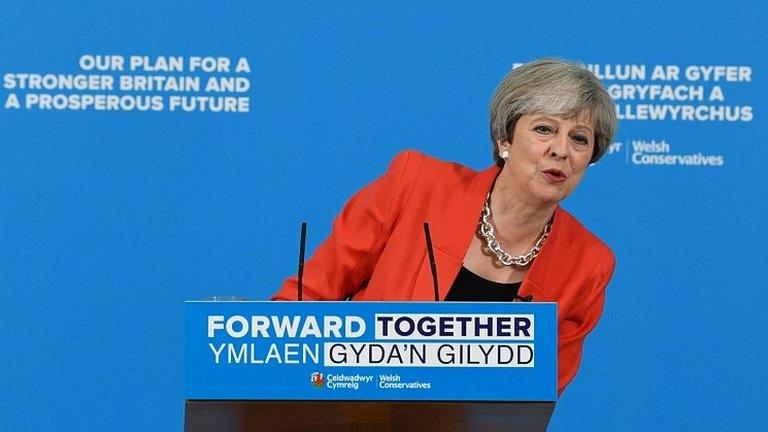
- Published22 May 2017

- Published22 May 2017
